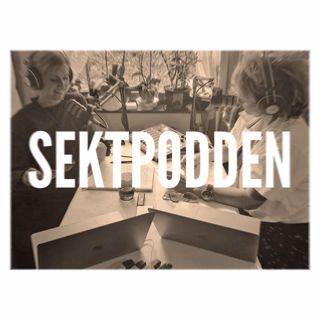
Fabulous Adventures in Data Structures and Algorithms with Eric Lippert
Join Scott and Eric Lippert for a lively tour through Fabulous Adventures in Data Structures and Algorithms, a fresh take on timeless topics that flips the script on how programmers think about core tools of the trade. Eric shares why he wrote a book that avoids the predictable interview-prep regurgitations, and instead dives into clever, lesser-known data structures and algorithmic ideas that he’s encountered over a long career in language design and tooling. You’ll hear how immutability can make data structures both simpler and faster, why backtracking shows up everywhere from tree search to puzzle solving, and how a deeper understanding of performance and abstraction can change the way you architect code. Along the way Eric reveals how to reconnect joy with problem solving, find surprising patterns that scale across domains, and build intuition that serves you long after the syntax fades from memory. https://www.manning.com/books/fabulous-adventures-in-data-structures-and-algorithms
8 Jan 32min

Vjekoslav Krajačić on File Pilot and a return to fast UIs
Modern computers are faster than ever, yet much of our software feels slower, heavier, and more frustrating to use. In this episode of Hanselminutes, Scott talks with Vjekoslav Krajačić, creator of File Pilot, about bringing speed and responsiveness back to everyday tools.Vjekoslav built File Pilot as a reaction to bloated file managers and laggy interfaces, focusing on instant feedback, keyboard-first workflows, and a UI that feels immediate. We talk about what actually makes software feel fast, why modern frameworks often work against that goal, and how users instinctively know when an app respects their time.This is a conversation about restraint, craft, and why fast UIs still matter.https://filepilot.tech
1 Jan 33min

Loris Cro on the Rise of Zig
Why are so many developers suddenly talking about Zig? Is it just another systems language, or is something deeper happening?Scott sits down with Loris Cro, one of the community voices behind Zig, to explore why this relatively young language is getting so much attention from systems programmers, game developers, and performance-obsessed engineers alike. We dig into Zig’s radical focus on simplicity, explicitness, and control...and why not having features like a garbage collector or hidden magic is actually the point.Loris explains how Zig approaches memory safety, cross-compilation, and interoperability with C in a way that feels refreshingly honest, and why Zig’s philosophy resonates in a world increasingly shaped by complex toolchains and opaque abstractions. Along the way, we talk about the cultural moment Zig is emerging into, what developers are really asking for in 2025, and whether Zig represents a return to fundamentals, or a glimpse of the future.
25 Dec 202532min

Trusting Agentic AI with Dr. Dawn Song
In this partnership episode between Hanselminutes and the ACM Bytecast, Scott talks with Dr. Dawn Song, MacArthur Fellow and leading researcher in computer security and AI and co-director at the Berkeley Center for Responsible Decentralized Intelligence about how privacy-preserving computation, fairness, and accountability can help us design intelligent systems we can actually trust.https://agenticai-learning.org
18 Dec 202535min

Human Agency in a Digital World with Marcus Fontoura
Marcus Fontoura has led engineering teams at IBM, Yahoo, Google, and Microsoft...building the very systems that power our digital lives. Now, as the author of Human Agency in a Digital World, he’s asking a more profound question: how do we stay in charge of the technology we create? Scott and Marcus explore what it means to move from being passengers to pilots in an age of automation — through ethics, education, and intentional design.https://fontoura.org
11 Dec 202534min

Daniel Temkin and the Beauty of Esoteric Languages
What happens when code stops being useful and starts being art? Scott talks with artist and programmer Daniel Temkin about his new book Forty-Four Esolangs, a deep dive into the world of esoteric programming languages...systems designed not to ship software, but to provoke thought. They explore how absurdity, constraint, and humor reveal something profound about how we think in code.https://danieltemkin.com
4 Dec 202535min

The Digital Runway: IT at the Philadelphia Airport with Camille Tomlin
Scott sits down with Camille Tomlin, Head of IT at Philadelphia International Airport, to explore the intersection of aviation, technology, and leadership. They discuss how airports are transforming digitally — with IoT, data analytics, and smart infrastructure — and how Camille leads a team that bridges city government, airlines, and millions of passengers every year.
27 Nov 202532min

C++ is Still Here, Still Powerful with Gabriel Dos Reis
In a world of Rust, Go, and Python, why does C++ still matter? Dr. Gabriel Dos Reis joins Scott to explain how C++ continues to shape everything from GPUs and browsers to AI infrastructure. They talk about performance, predictability, and the art of balancing power with safety...and how the language’s constant evolution keeps it relevant four decades in.
20 Nov 202535min






















